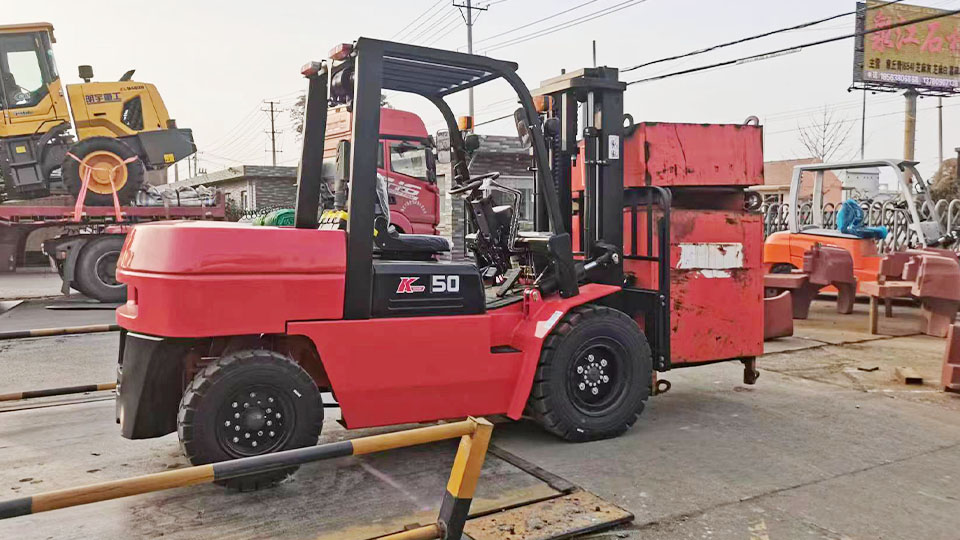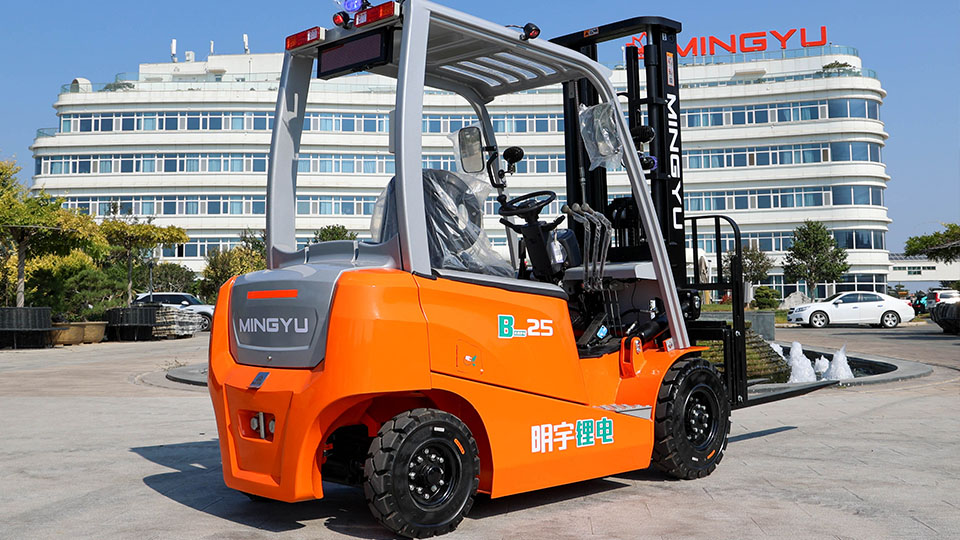
Step 1: Understand the Basics of a Forklift Operator's Role
Before you can convince an employer to hire you, you need to understand what the job actually entails. It's more than just driving a machine; it’s about safety, precision, and efficiency. A forklift operator is a critical part of a company's logistics and supply chain.
Key Responsibilities:
Operating the Forklift: This includes operating various types of forklifts, such as sit-down, stand-up, reach trucks, and turret trucks, to move materials around a warehouse, construction site, or distribution center.
Loading and Unloading: Safely loading and unloading trucks, trailers, and rail cars.
Inventory Management: Stacking and retrieving materials, often using a warehouse management system (WMS) to track inventory.

Safety Checks: Conducting daily pre-shift inspections (often called a "circle check") to ensure the forklift is in good working order. This includes checking the tires, brakes, horn, lights, and fluid levels.
Maintenance: While not a mechanic, operators are responsible for basic upkeep, such as changing or charging batteries for electric forklifts or refilling propane tanks for internal combustion models.
Record Keeping: Maintaining a log of the forklift’s usage and any issues encountered during the shift.
By understanding these responsibilities, you can tailor your resume and interview answers to show that you've done your homework and are ready for the job's demands.
Step 2: Get Certified (It’s a Must!)
This is the single most important step you can take to bridge the gap between "no experience" and "hirable." While you can get a job without prior driving time, you cannot legally operate a forklift in the United States without being certified. OSHA (Occupational Safety and Health Administration) requires that all forklift operators be trained and certified. Getting this done on your own shows initiative and commitment.
Types of Certification:
Formal Instruction: This includes classroom learning, online courses, or video sessions that cover the principles of safe forklift operation, the types of forklifts, stability, and handling of different loads.
Practical Training: This is hands-on training where you get to practice operating a forklift under the supervision of a certified trainer. You will learn to maneuver, lift, lower, and stack loads safely.
Evaluation: The final step is a practical evaluation where you are tested on your ability to perform the tasks you learned.
How to Get Certified:
Online Courses: Many companies offer online courses for the formal instruction part of the certification. These courses are affordable and can be completed at your own pace.
Local Training Centers: Check with local trade schools, community colleges, or equipment dealerships. They often offer full certification programs that include both classroom and practical training.
Job Placement Agencies: Some temp agencies that specialize in warehouse and industrial jobs offer free or low-cost forklift certification to qualified candidates. This is a great way to get certified and potentially get a job lead at the same time.
Once you have your certification, put it prominently on your resume. This shows employers that you have the necessary foundational knowledge and have fulfilled the basic legal requirement to operate a forklift.
Step 3: Build a Job-Winning Resume
With no experience, your resume needs to focus on your transferable skills and qualifications. Think about the skills you already have that are relevant to a forklift operator's job.
What to Highlight on Your Resume:
Your Certification: As mentioned, this is your most valuable asset. Place it right at the top of your resume, under your name and contact information.
Physical Fitness and Stamina: The job requires physical stamina. Mention any physically demanding jobs you've had, or if you've worked in a fast-paced environment.
Attention to Detail: Forklift operation requires precision. If you've had a job that required meticulous attention to detail, like inventory management, data entry, or quality control, highlight it.
Safety-Conscious Mindset: Employers value safety above all else. Mention any experience you have with safety protocols, such as following procedures, wearing personal protective equipment (PPE), or working in a team where safety was a priority.

Teamwork and Communication Skills: Forklift operators work with other team members, including warehouse staff and truck drivers. Highlight any teamwork or communication skills you've developed in past jobs.
Problem-Solving Skills: Briefly describe a situation where you identified a problem and found a solution, showing that you can think on your feet.
Use a professional, clean template and make sure your resume is free of spelling and grammar errors.
Step 4: Search for the Right Jobs
Now that you're prepared, it's time to start looking for a job. Not all forklift jobs are created equal, and some are more open to entry-level candidates than others.
Where to Look:
Warehouse and Logistics Companies: Large-scale warehouses and distribution centers are constantly hiring. Many have training programs for new operators.
Temp Agencies: This is one of the best ways to get your foot in the door. Many companies use staffing agencies to fill short-term or temp-to-hire positions. This allows you to gain experience and potentially secure a full-time job.
Job Boards: Websites like Indeed, Monster, and Craigslist are great places to find job listings. Use keywords like "forklift operator," "warehouse associate," "material handler," and "order picker." Pay close attention to job descriptions that state "forklift certification required" but don't explicitly ask for years of experience.
Directly with Companies: Check the careers pages of major companies that rely on forklifts, such as Amazon, Home Depot, Coca-Cola, or manufacturers in your area.
Step 5: Ace the Interview
The interview is your chance to sell yourself and prove that you are a reliable and trainable candidate.
What to Say and Do:
Be Enthusiastic and Professional: Show up on time, dressed appropriately, and with a positive attitude.
Emphasize Your Certification: Mention your certification early and often. It's your trump card.
Discuss Your Commitment to Safety: Talk about your safety-first mindset. Mention that you understand the importance of pre-shift inspections and following all safety protocols.
Relate Your Past Skills: Use your past job experiences to showcase transferable skills. If you were a retail worker, talk about your attention to detail in stocking shelves. If you were a server, mention your ability to work quickly and under pressure.
Ask Questions: Show that you're genuinely interested in the job by asking questions. Examples include:
"What kind of safety culture do you have here?"
"What does a typical day look like for a forklift operator?"
"What opportunities are there for a new operator to advance?"
By following these steps, you can confidently pursue a job as a forklift operator. With the right training and a little bit of hustle, your lack of experience won't be a barrier to a successful new career.
Name: selena
Mobile:+86-13176910558
Tel:+86-0535-2090977
Whatsapp:8613181602336
Email:vip@mingyuforklift.com
Add:Xiaqiu Town, Laizhou, Yantai City, Shandong Province, China